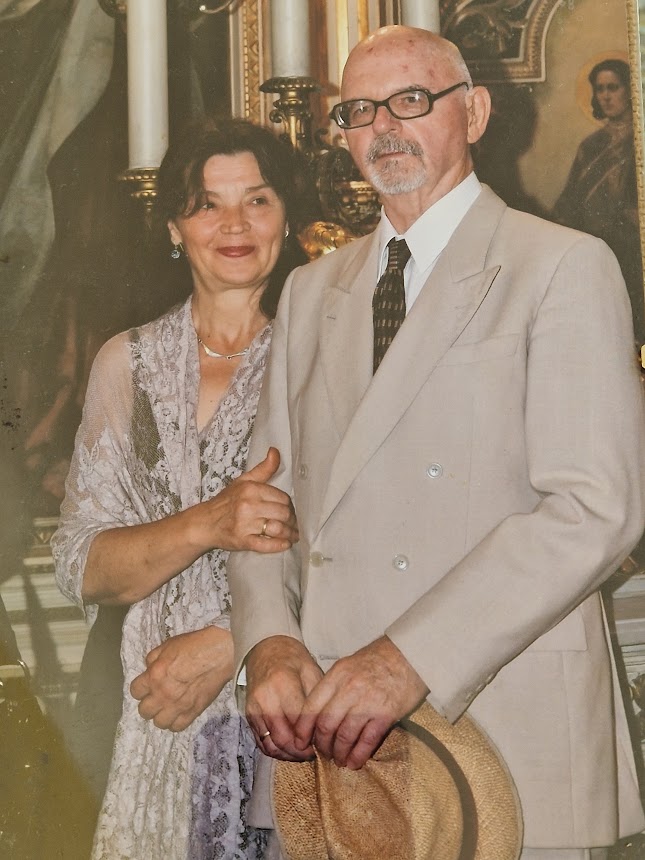On the porch of her house in the village of Parage, we spoke with Živana, the widow of the renowned American writer and journalist, Charles Alverson, about his life in Bačka County
by Robert Čoban
After my cycling tour in Parage, a friend asked me if I knew that the famous American writer and journalist Charles Alverson lived in this Bačka village.
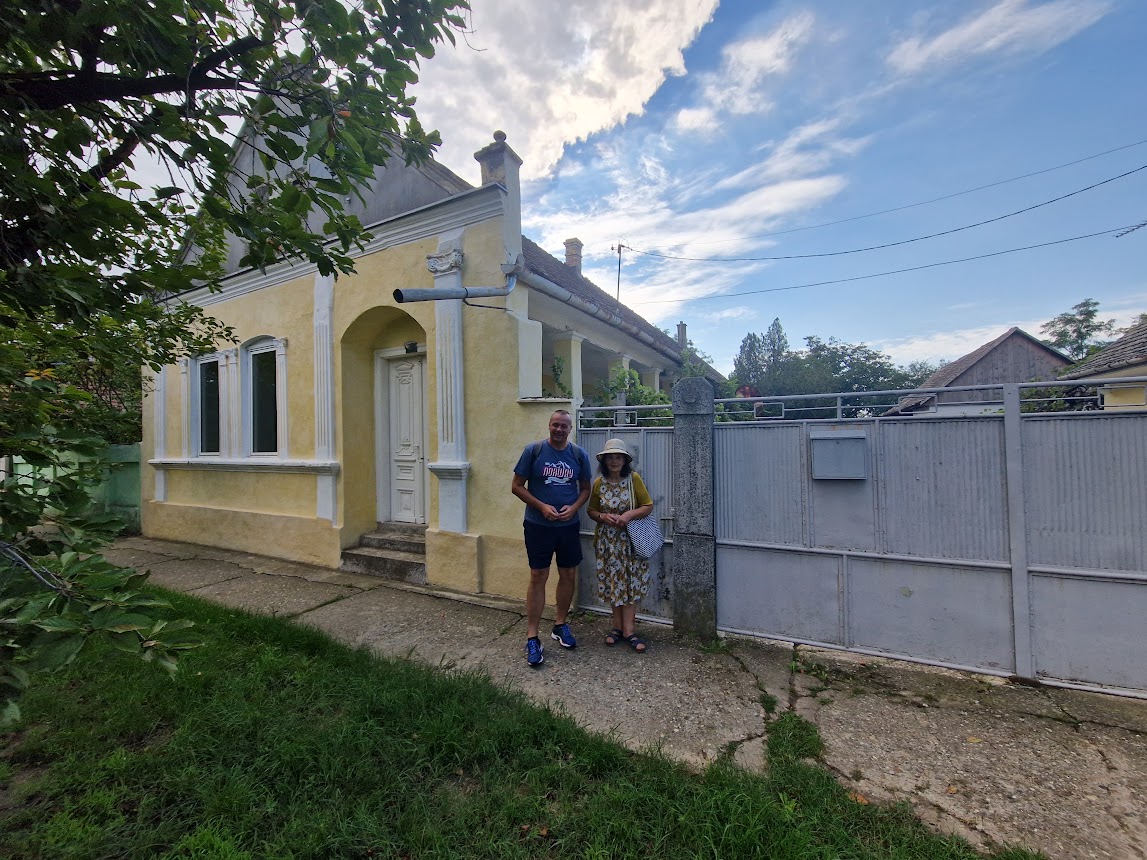
A short online search revealed to me that, from the late 1990s to his death two years ago, the writer Charles Alverson, a collaborator, a friend of some of the members of the Monty Python gang and a co-writer of the first version of the script for Terry Gilliam’s iconic film “Brazil”, lived in Parage. Alverson was personally present (as a member of the live audience) at the filming of the original Monty Python television series.
I found the phone number of the Alversons. I called it, Živana answered and we arranged a meeting at their house in Parage.
Charles’ widow greets me on the porch of her house dressed in a yellow dress with big white daisies and a white Panama hat on her head, resembling a Southern belle from a Margaret Mitchell novel.
Živana, born to the Aničin family in Parage, was a long-time journalist for Nada magazine, so the first part of the conversation inevitably focuses on exchanging experiences from the late 1980s and early 1990s, in the Borba building in Nikola Pašić Square in Belgrade, at the time when I just started and she ended her journalistic career.
During his career as a journalist, Alverson interviewed John Lennon and Yoko Ono when they protested by lying in a hotel bed for a week which became an integral part of the 1960s iconography
“Charles and I met in 1978 in London, at the house of Alison and Terry Jones, one of the members of the Monty Python group. He was then living with his first wife and children in Cambridge and came to visit the Joneses one day. Our friendship was born there and then, but no love. After two years of learning English and babysitting, I returned to Belgrade,” Živana begins her story. In the next few years, she travelled to London several times and met with both the Joneses and Alversons.
As an anti-war activist, Alverson was one of the major opponents of the American intervention in Iraq in 1990, as well as Margaret Thatcher’s tax policy.
In 1993, Charles was in Budapest at a conference and called Živana from there.
“I explained to him how to get from Budapest to Belgrade by bus. It was only then that the romance between the two of us was born. A year later, he returned to Belgrade and we started living together there. He was a correspondent from this part of the world for several American and British newspapers, and I still worked at Nada. Serbia was very interesting to him in those crazy years at the beginning of the 1990s, and that period of his life was a kind of a ‘participation experiment’. Since our country was under sanctions, his move to Belgrade was a real logistical undertaking. We decided to get married, first at the registry office and then in the church. We wanted to get married in Parage, but they told us that we had to get married in Belgrade’s municipality of Savski Venac. The explanation was that “all foreigners live there and that’s the only municipality which knows how to conduct a marriage ceremony involving a foreigner”. As my office was brimming with unmarried middle-aged women, my colleagues tried to arrange all the required documentation so the wedding could take place in a church. Our wedding was in the Russian church, just behind Saint Marko Church, as I knew the priest’s wife there. In order to get married there, Charles first had to be baptized and become a member of the Serbian Orthodox Church,” Živana says.
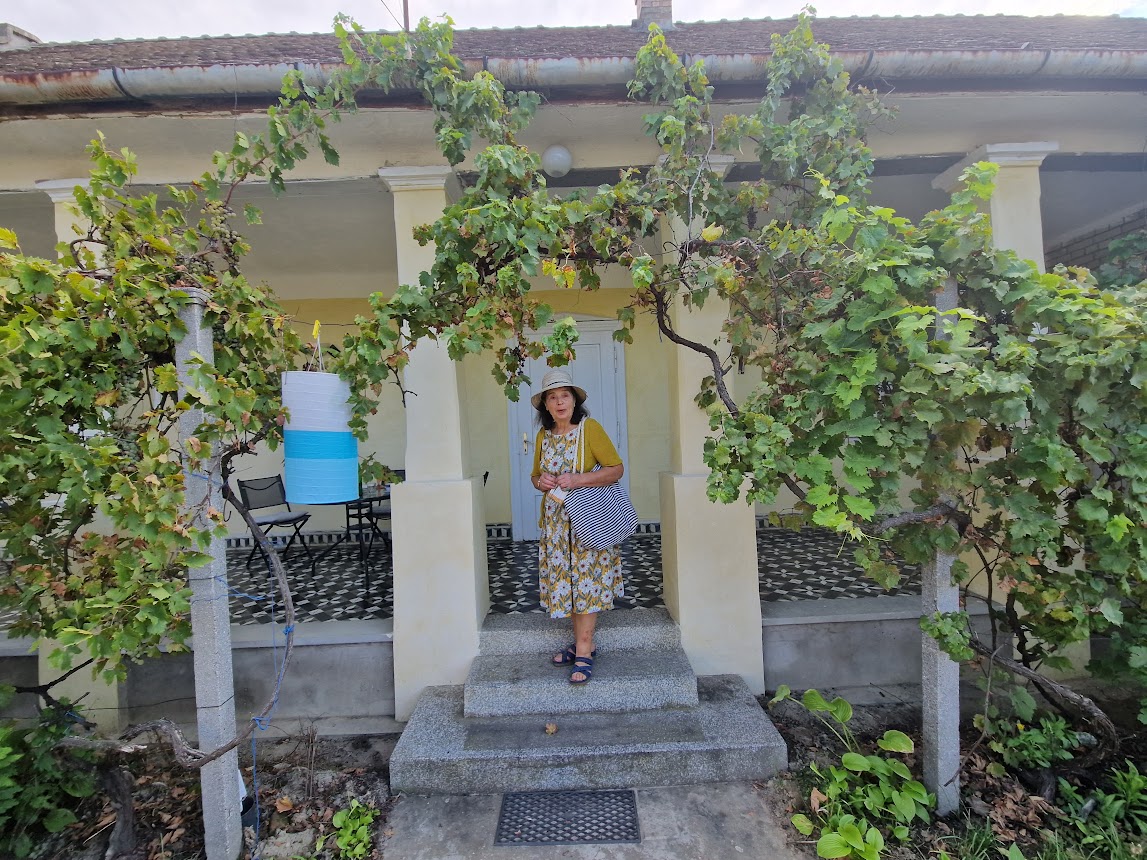
After Živana’s mother fell ill in Parage, the Alversons decided to move to this village in the heart of Bačka County. Charles enjoyed the country life.
“He had two dogs that he brought over from England. As soon as they entered the yard, they killed my mother’s 15 ducklings. She loved him so much that she didn’t get angry. Every morning he got up at five o’clock and learned the Serbian language from books and tapes he had bought. He wanted to speak it perfectly, which he didn’t quite manage. He mowed the grass in front of the house, went to the store and the locals really liked him. When the Cultural Centre was being renovated, Charles volunteered to help and took out all the debris. At the Parožani Paragama event, Charles sold American popcorn for charity. At Christmas, when badnjak is burned in the streets, he prepared mulled wine for the locals. When he drank, he would laugh all the time and later fall asleep where he was,” Živana describes the village life of the famous writer.
“He travelled extensively throughout the country in which he found himself in and treated it with the same respect and curiosity as he showed to the magnificent global metropolis.”
During his career as a journalist, Alverson interviewed John Lennon and Yoko Ono when they protested by lying in a hotel bed for a week which became an integral part of the 1960s iconography. He also met the members of the iconic music group Bonzo Dog Band, and (secretly) recorded the last interview with Janis Joplin. Alverson was a witness of important turmoil on the contemporary scene and talked to many people who were part of historical events related to the world of comics, film and rock music. During the last years of his life, working from his home in Parage, Charles achieved notable success as a novelist.
“In the space of just one year, here, in a small house in the yard, he wrote four novels. He used to set a goal for himself of how many words he should write every day,” Živka reveals.
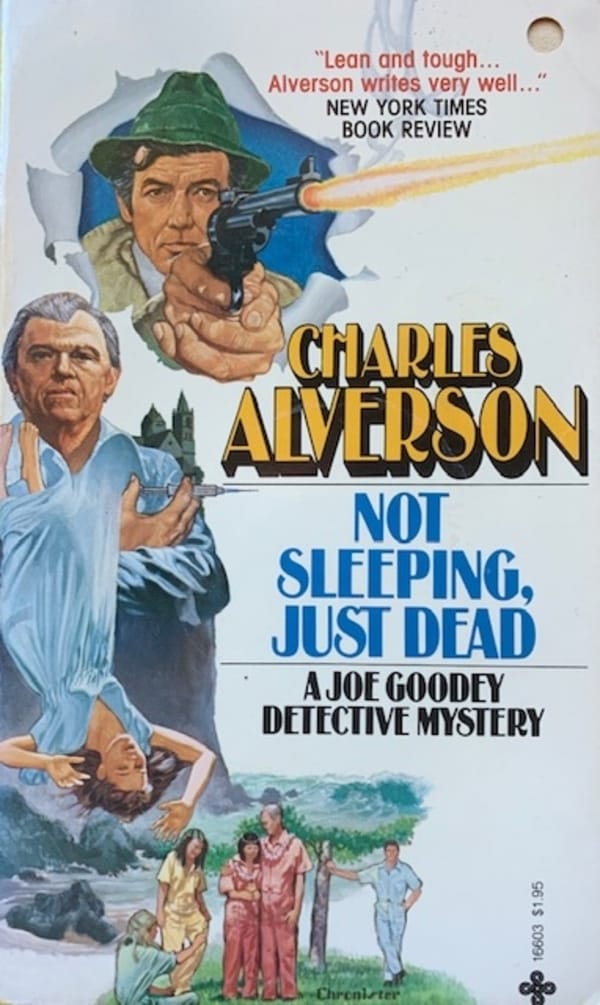
His novels have been translated into six languages. The novel “Caleb” about a black man, a slave in the American South during the 19th century, was also published by Dereta in the Serbian language. The story of an unusual slave-boxer begins in the deep American South, on endless cotton fields. Too brash to comply with the rules of the game, but also too intelligent to pass up the chance for freedom he experienced as a child, Caleb tries to take the best position from which he can win freedom. Whether the nearby Jegrička River inspired him to write about the American South and the Mississippi, which also “quietly flows”, is anyone’s guess. But as soon as I entered the yard of the Aničin family’s freshly painted house, I felt the spirit of its surroundings.
“Here, in the house in Parage, we witnessed the 1999 bombing. Charles was very distressed about it and he kept saying: ‘My country is bombing the country and the people who accepted me as their own!’ One day they called us from the police, i.e. their Department for Foreigners, and asked if Charles would give a speech on a Novi Sad bridge. That very bridge was bombed the next day,” Živana continues her story.
As Saša Rakezić wrote in Charles’ obituary for Vreme magazine, Alverson undoubtedly belongs to Serbian culture as well: “He travelled extensively throughout the country in which he found himself in and treated it with the same respect and curiosity as he showed to the magnificent global metropoli. He attended several editions of the Grrr! international comics festival in Pančevo, where he spoke about Harvey Kurtzman, the Monty Python series and other topics, and was one of the programme’s organizers at the Cheap Film Festival in Subotica. Charles also appeared in Djordje Marković’s documentary-feature-animated film ‘The Last Adventure of Kaktus Bata’,” Rakezić wrote after Charles’ passing on January 19, 2020.
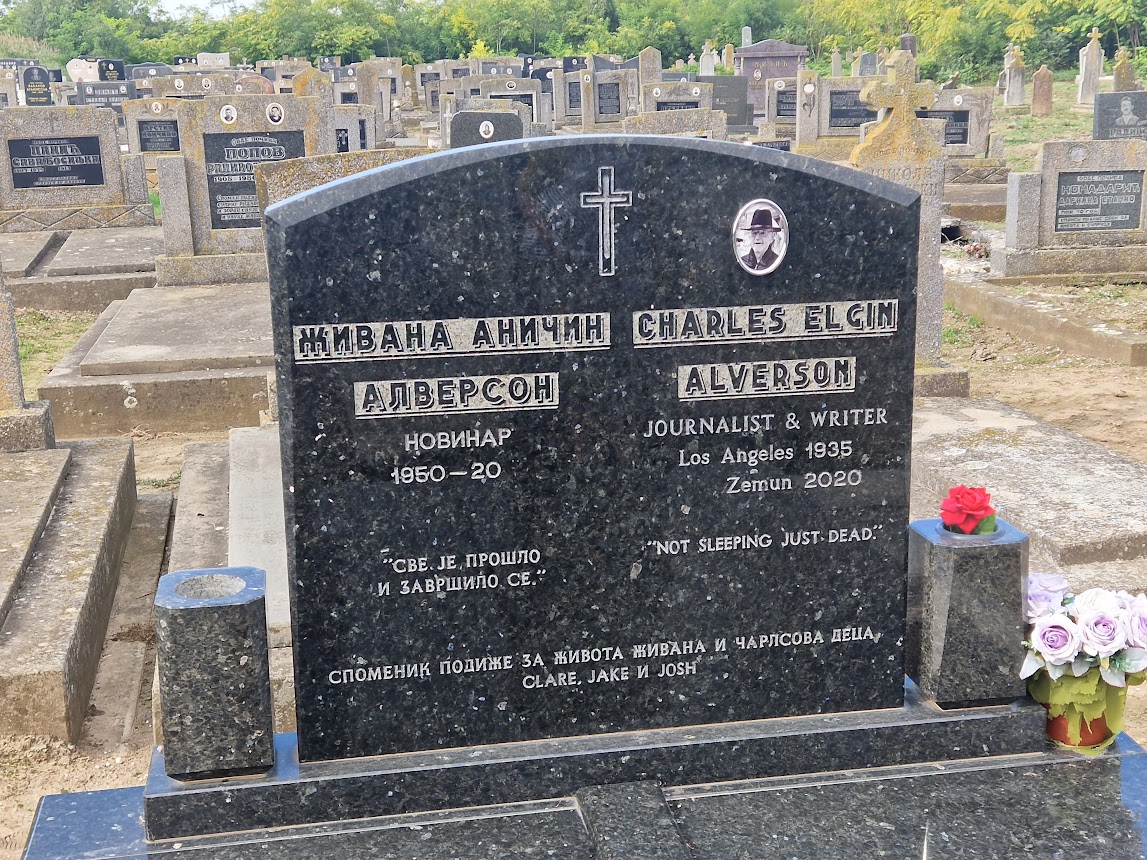
Živana shows me a photo album of Charles’ children – Claire, Jake and Josh – with whom she maintains close contact to this day. Charles’ funeral in Serbia was delayed for six days while waiting for his children to arrive.
We agree to go to the cemetery. “I’m going to take my car so you don’t have to drive me home,” Živana told me and got into her car with Belgrade license plates.
“Not sleeping, just dead”, (a quote from the title of one of his novels), is written on the black marble headstone below Charles’ name at the cemetery in Parage. “Everything has passed and is over” is written under Živana’s name on the headstone.
Terry Jones, a member of the Monty Python gang, Charles’ friend and co-worker, died just two days after him – on January 21, 2020.
